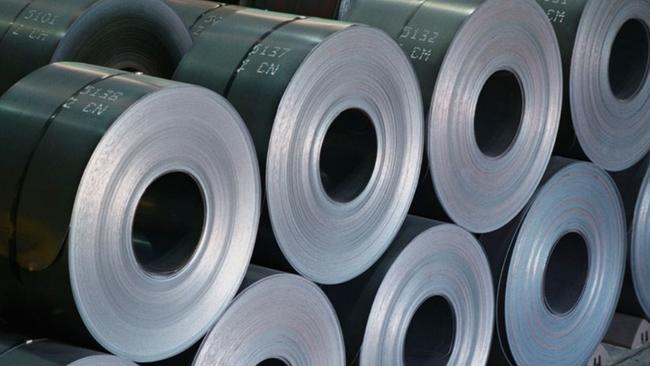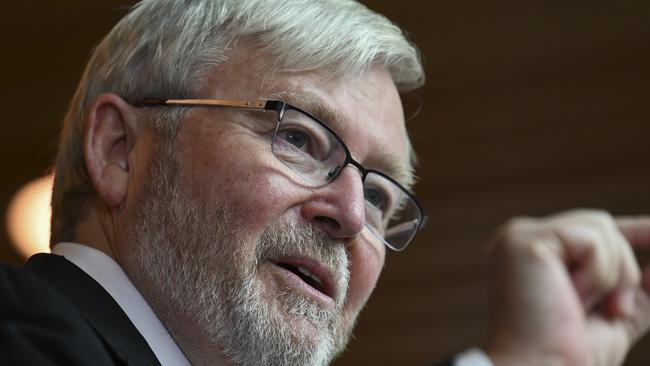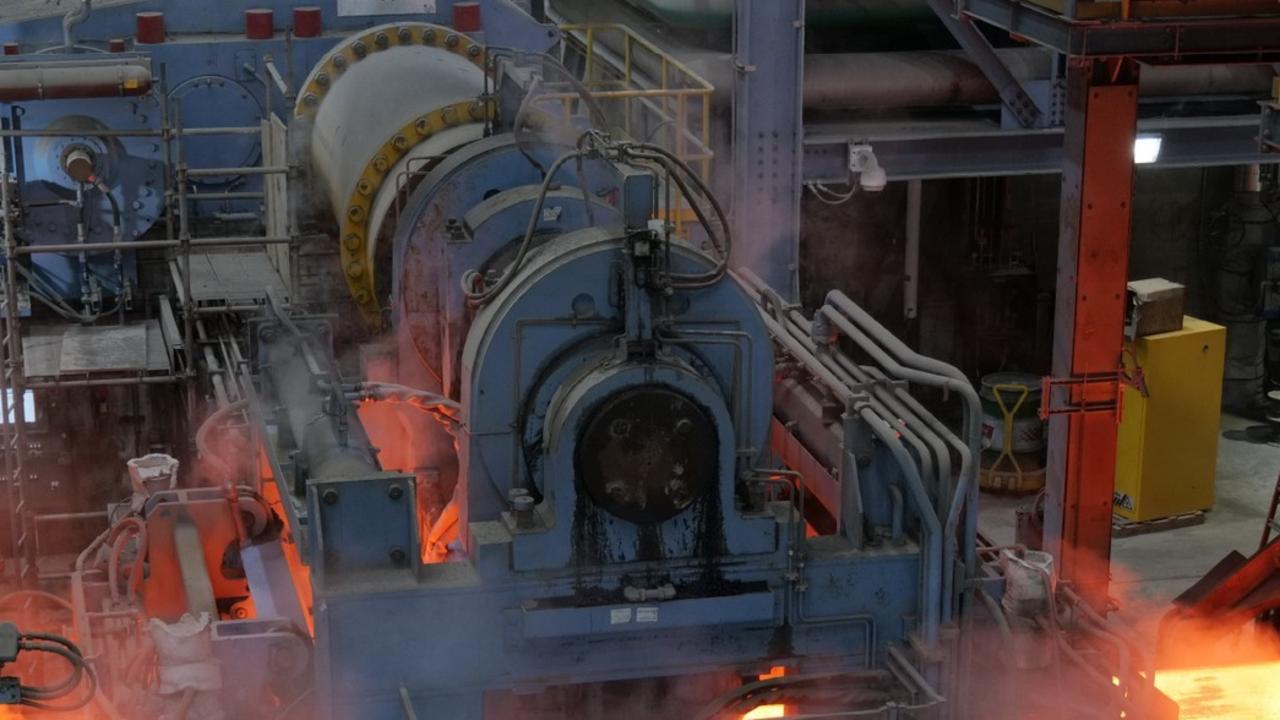Prepare for a fresh wave of dumping, industry warns
The US’s proposed imposition of blanket tariffs on steel and aluminium would result in an influx of steel dumped into the Australian market, experts say.

Business
Don't miss out on the headlines from Business. Followed categories will be added to My News.
The US’s proposed imposition of blanket tariffs on steel and aluminium would result in an influx of steel dumped into the Australian market, which is already feeling the effects of cheap Chinese steel being offloaded here at cut prices, experts say.
And having former Prime Minister Kevin Rudd in the chair as Australia’s ambassador to the US is an obvious downside to any future negotiations, given his previous comments about President Donald Trump.
Wilson Asset Management lead portfolio manager Matthew Haupt said former ambassador and former federal treasurer Joe Hockey was instrumental in having Australia carved out of tariffs during the first Trump administration.
But, with Mr Rudd previously labelling President Trump “the most destructive President in history’’, and the President in turn saying Mr Rudd was “nasty” and “not the brightest bulb”, it was not a good starting point for negotiations, Mr Haupt said.
“Can Australia’s US ambassador save us this time? Highly unlikely given his comments,’’ Mr Haupt said.

Mr Haupt said Australia was likely not the intended target of the tariffs, however, and it would be important to see how the nuance evolved in coming days as more details of the tariffs emerged.
Prime Minister Anthony Albanese recently revealed Mr Rudd and Mr Trump had met prior to the President’s inauguration on January 21.
Australian Steel Association chief executive David Buchanan said should the tariffs be imposed broadly, with respect to the US’s trading partners, the real risk was disruption to global steel markets, with China in particular looking for a new home for its steel.
This could lead to markets in Southeast Asia being “backwards-flooded” with steel, which could then make its way to Australia in more finished forms.
Mr Buchanan said the biggest question, should the US raise trade barriers, was “where does all this steel go?”
There are already several anti-dumping cases related to steel before the Australian anti-dumping commission and Mr Buchanan said this number would invariably rise.
And while more cheap steel from China was likely, the risk around cheaper finished goods coming here from other companies, made with cheaper Chinese steel, was just as concerning, he said.
“The real concern there is a decrease in the steel intensity of Australian industry,’’ Mr Buchanan said.
“We will see an influx of dumping and we will see a lot more dumping cases.
“It will also make a mess of the steel trade globally.’’
Complaints related to the dumping of aluminium and steel dominate the workload at Australia’s Anti-Dumping Commission, with eight current steel complaints on foot and three around aluminium products.
Australia’s largest steel producer and exporter BlueScope has a current complaint about hot rolled coil steel being dumped into Australia cheaply by Chinese competitors.
Many of the commercial figures in BlueScope's complaint have been redacted, however, BlueScope says across the three-year period in question, from 2021 to 2024, “imports of hot rolled coil from China have grown and hence their presence in the Australian market has markedly increased’’.
The percentage increases in Chinese steel exports to Australia over the period have been redacted, but the complaint says the trend has “translated to a material loss of sales volume for the Australian industry while China has substantially increased its presence’’.
“The injury to BlueScope considering this trend cannot be understated,’’ the company says.
“A declining market in conjunction with an unprecedented Chinese presence has translated to material lost revenue injury due to BlueScope’s lost market share … China has established a large supply channel into the Australian market in a relatively short period of time.
“The price undercutting, price depression, and price suppression evident has caused material injury to BlueScope.’’
The Anti-Dumping Commission’s investigation into BlueScope’s complaint, lodged in November, is ongoing.
BlueScope told the ASX on Monday it would continue to abide by all international trade rules and agreements, while pointing out it has substantial steel manufacturing operations in the US.
“We are aware of media reports this morning that President Trump has said he will announce tariffs on steel and aluminium imported to the US,’’ a BlueScope spokesperson said.
“BlueScope has been investing in the United States for 30 years. Most recently, we have spent $2bn on acquisitions and brownfields expansion of our operations there. BlueScope is now the fifth largest steel producer in the US, employing 4000 American workers.
“BlueScope abides by all trade rules and agreements. We will continue to work with the Trump administration and the Australian Government, as we await further details. We have no further comment to make at this stage.”
Australian Workers Union national secretary Paul Farrow said Australia needed to get tough on dumping, or risk jeopardising vital industries.
“I understand the government’s pulling out all stops to secure an exemption and of course that’s an urgent priority,’’ Mr Farrow said.
“But, they should also take heed of the big picture here. The days of Australia being a sucker and adhering to the rules of some global free trade game no one else is playing must officially be over.
“If we want to protect Australia’s economic sovereignty then we need to act urgently and decisively: crack down hard on illegal dumping, invest in the critical industries we need to keep society running, and make sure we are procuring locally for every, single publicly funded project. If we don’t adapt we won’t survive.’’
BlueScope shares were 1.7 per cent higher in afternoon trade at $21.89.
Originally published as Prepare for a fresh wave of dumping, industry warns



